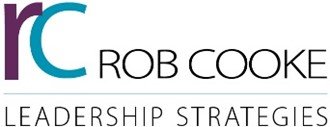
Are you an Essential Leader?
I got, got, got, got no time… Randy Bachman wrote these lyrics for the Guess Who in 1969. Today they take on new meaning.
As a leadership advisor I work with leaders across multiple sectors: private, public, crown, municipal, financial services, resource and health care. Every day I hear the same story repeated over and over, “I am too busy”, “I don’t have time to think about the future, I am barely dealing with the day to day challenges”, “we need to postpone our call for a week or two because I am swamped.”
I had a recent conversation with a financial services executive who described to me two different kinds of leaders. The first kind of leader he considers the “good practitioner manager” while the second he considers the “essential leader”. He went on to describe to me how these two leaders are different.
He said that good practitioner managers do a good job of managing the day-to-day challenges and issues that arise. They respond quickly to client and stakeholder requests and provide timely advice and direction to their staff. They move quickly from issue to issue and will tell you they are busy, busy, busy and have no free time. Urgent issues take precedent over the need to refine longer term strategies and there is rarely time to get to it. When they head out of the office in the early evening they take home a briefcase full of items to read and review. Staff like working for good practitioner managers. They get their questions answered and have a pretty clear idea of what is expected. Senior management like having good practitioner managers in their organization because they know that the key challenges will be addressed. At the end of the week the good practitioner manager has pretty well responded to all of the emails received and is ready for a relaxing weekend before they head back in to do it all again the following week.
Contrast this with what he referred to as ‘essential leaders’. These leaders take time on a regular basis to think about the future of their organization. Away from distractions, they work individually or with their team to refine their vision for the future, focusing on what outcomes they want to achieve and how their business needs to look and feel. They determine how to create the culture and values that will attract and retain the best employees and customers. They articulate their unique identity and what they want to be known for. These leaders spend time each week, free from email and telephone interruptions, to plan for the following week and month and to look into the future.
Essential leaders don’t get caught up in every day-to-day issue. They expect their people to come to them with solutions and intended actions already mapped out. They know what items on their list have a real impact on performance and outcomes and which ones only they can do. The rest of the list is delegated and low impact items are removed. Essential leaders are driven to create an inspiring workplace, where people are excited and challenged to make a difference and to achieve outcomes that have meaning.
Are you a good practitioner manager or an essential leader?
What do you need to change or let go of?
About the Author: Rob Cooke is a leadership advisor, strategist and coach. Drawing on a strong background in business and organizational development, Rob utilizes his extensive consulting experience to help leaders address emerging challenges, seize opportunities and execute approaches to achieve personal, leadership and business goals.
June 22, 2017 | Leadership Development
